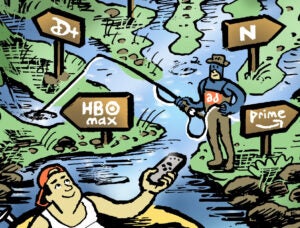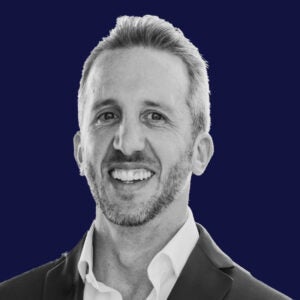 Agency holding group Interpublic Group is recruiting for at least five new Advanced TV positions for its trading desk and tech unit Cadreon.
Agency holding group Interpublic Group is recruiting for at least five new Advanced TV positions for its trading desk and tech unit Cadreon.
Cadreon, which employs about 500 globally and 300 in the US, attributes the hiring moves to recent advances by networks like NBCUniversal and Fox to automate digital video, display and now linear TV inventory through private exchanges.
“We have a huge appetite for evolving the way TV is planned and bought, but one of the things we wanted to do was to make sure we didn’t call it programmatic TV,” said Erica Schmidt, EVP and managing director for Cadreon North America. “We called it advanced TV because there is automation and application of data involved.”
IPG’s trading desk has evolved through several iterations in its lifespan. In 2013, for example, the holding group shifted Cadreon’s operations away from Mediabrands’ Audience Platform to a new reporting structure under Magna Global, the new global media investment division at the time.
That has changed. IPG’s Advanced TV product offering is now incubated within Cadreon for branding and reporting purposes.
“We don’t sit under the Magna umbrella anymore today, although Magna is a global partner to us for marketplace development,” Schmidt added.
It’s an important distinction for Cadreon, which has very vocally distinguished itself from the rest of the holding group pack by resisting a decentralization of its core technology assets. That led to a talent bloodbath for Publicis when it disassembled its trading desk VivaKi.
Cadreon’s slew of new hires, which extend well beyond advanced TV to include a range of programmatic ops positions, indicate these interests persist.
Cadreon has also migrated some of its key investment and marketplace talent to data-driven TV. For instance, Matt Bayer, Magna Global’s VP of advanced TV, was promoted to SVP of Advanced TV at Cadreon last April.
Then last May, Cadreon revealed details around the build-out of a private TV trading desk using TubeMogul’s software platform.
Although individual IPG agency divisions such as UM and Magna each have buying clout in their own right, “when the two of them [digital video and TV] merge, why would I have separate agencies buying video and advanced TV?” Arun Kumar, Cadreon’s global president told AdExchanger at the time. “It’s going to become cross-screen.”
In many ways, Magna remains Cadreon’s voice to the marketplace. Historically, when its unified investment group would talk to publishers about programmatic, those conversations spanned ways to secure preferential or early access to inventory.
“Those conversations have now evolved to NBCUniversal and Hulu, which is a little different than advanced TV, but where it’s still saying to them, ‘We don’t take a position on inventory, but when we set a price and method for how our clients buy, how do we evolve the way it’s done?” Schmidt said.
Schmidt, who joined Cadreon by way of AMNET last winter, said she made the leap because of Cadreon’s technology specialization, particularly its emphasis on advanced TV.
“The marketplace position for TV is difficult right now,” she added.
There’s more demand than there is supply, and although it’s an Olympic and Election year, viewership is down across the board in linear.
“However, that doesn’t mean the content isn’t still good,” she said. “It’s great more folks [like AT&T and Fox] are coming onboard, thinking differently about how they purchase supply with greater applications of data and how they can organize advanced buys with us. It’s still early days, but it’s encouraging.”














